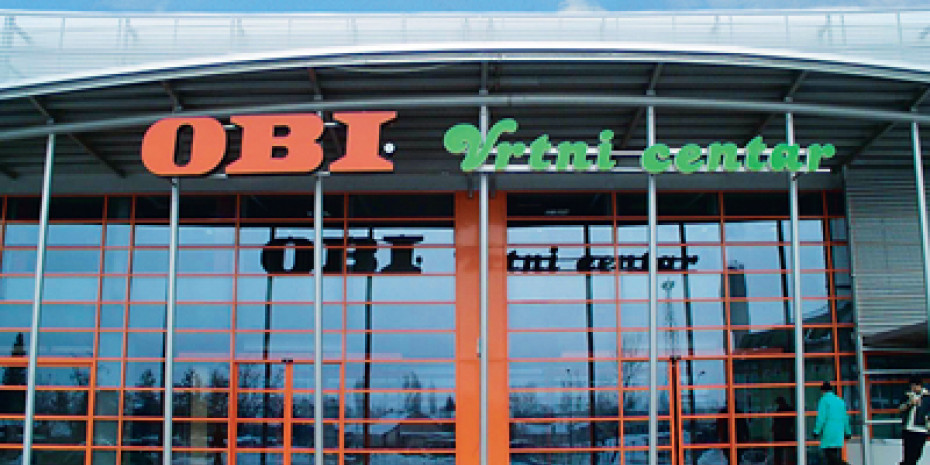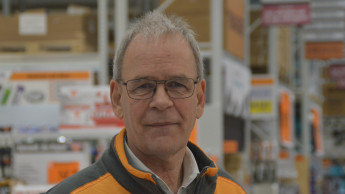The first OBI of 5 000 m² opened in Sarajevo.
OBI and its two franchise partners have invested approximately 30 mio euro in their entry onto the market of the Republic of Bosnia-Herzegovina. Zlatko Adzovic, chief executive of the franchise partner Bau & Garden d.o.o. in Sarajevo, voiced his conviction that, “We shall be able to make a significant contribution to the further revival of trade and industry in our home country through the partnership with OBI.”
OBI’s international suppliers account for 70 per cent of the range.
The two outlets in Sarajevo and Mostar each offer a range of around 40 000 articles on a retail area of 5 000 m². Each also has a “Gartenparadies” garden centre on an area of 600 m². A product offer of this magnitude has never before been available in Bosnia. Thirty per cent of the range is sourced from suppliers in the region, and the rest is procured from OBI’s international suppliers.
Two thirds of the products are offered at low entry prices.
Each of the two stores employs a staff of around 85 working in two shifts in order to ensure the business operates on all seven days of the week (Monday to Saturday: 8 a.m. to 8 p.m.; Sunday: 8 a.m. to 3 p.m.). This makes OBI one of the biggest employers in the region. The employees, who all without exception come from the area, undergo OBI’s training programme and further development courses, particularly in areas including sales and logistics.
OBI is entering the Bosnian market with a clear pricing policy geared to the prevailing local conditions. Two thirds of the product assortment is offered at low entry prices, since there is almost no middle class at all. Total sales of 6.5 mio euro are targeted for the first financial year.
The OBI beaver has arrived in Bosnia-Herzegovina.
This expansion towards central and eastern Europe is an important strategic operating area for OBI. After the opening up of the market in Slovenia, where the existing three stores are to be supplemented by two more outlets in the foreseeable future, the group’s expansionary activities now centre on the emerging states within the territory of the former Yugoslavia.
This region has a population of almost 22 mio, which makes it the second largest market in central and eastern Europe after…









